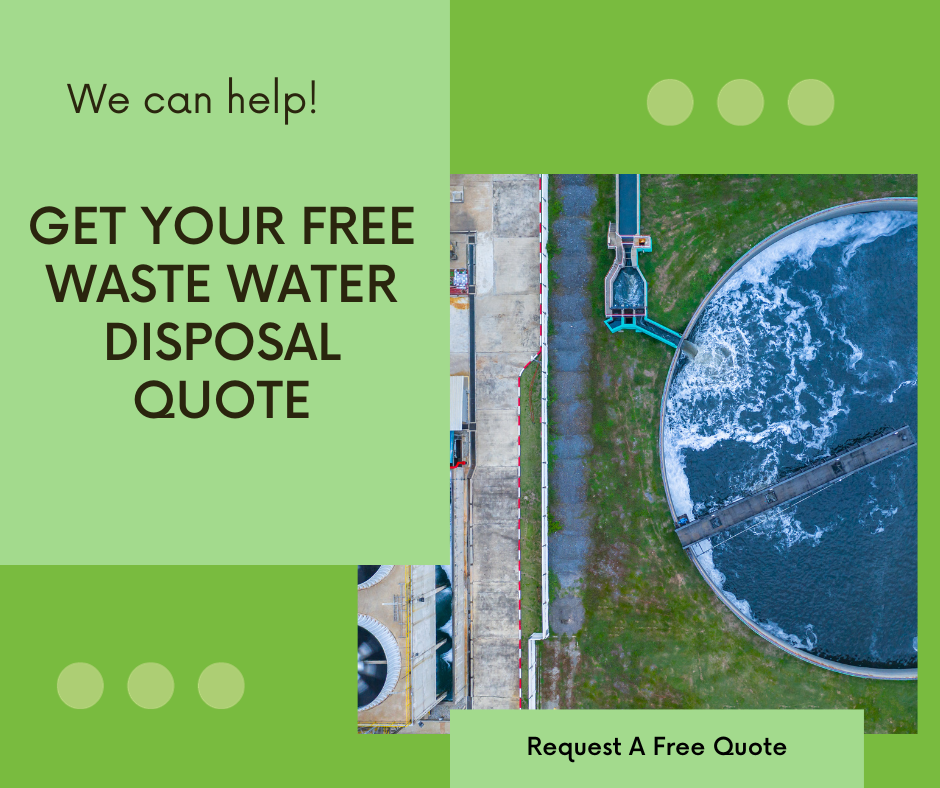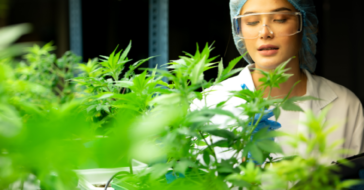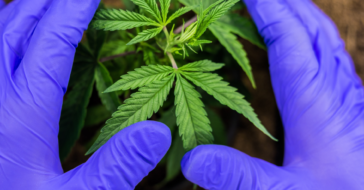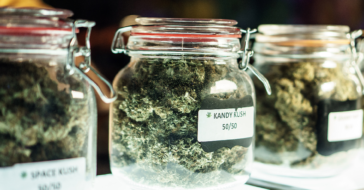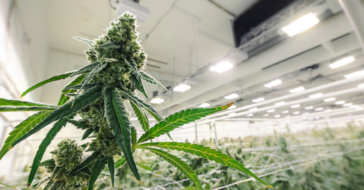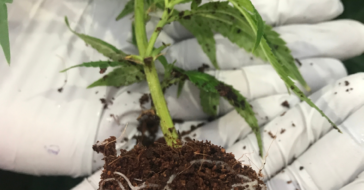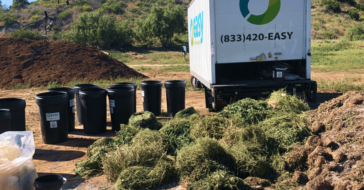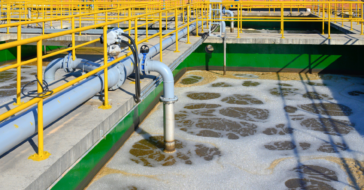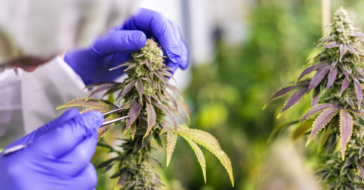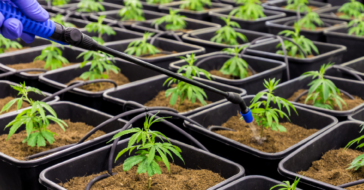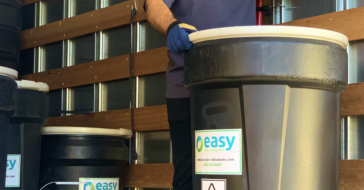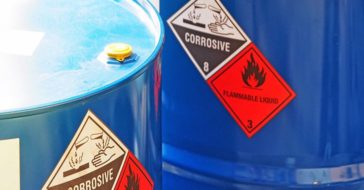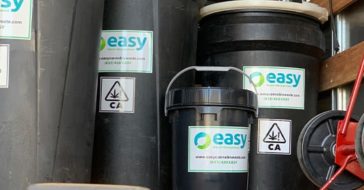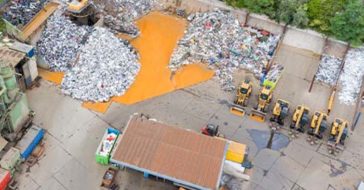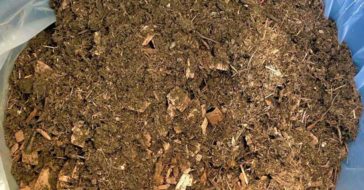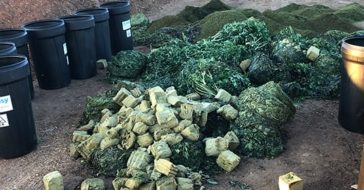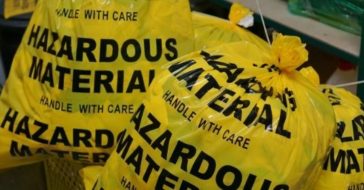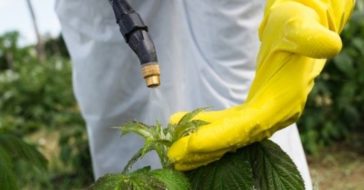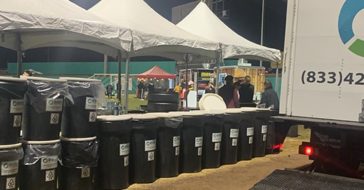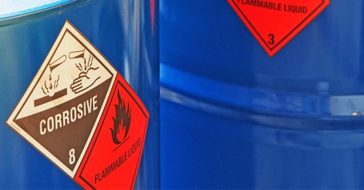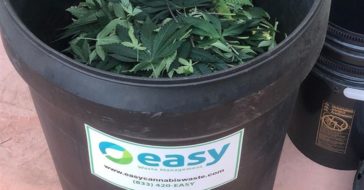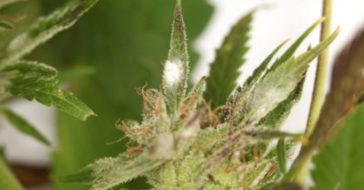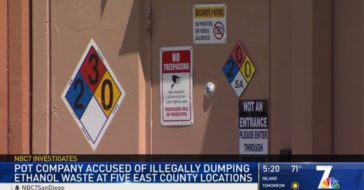The cannabis industry has experienced explosive growth in recent years, emerging from the shadows of prohibition into a legitimate and rapidly expanding sector.
As more states and countries legalize both medicinal and recreational cannabis use, the demand for cannabis products has soared. However, this remarkable growth comes with its own set of challenges and responsibilities, particularly in terms of environmental sustainability and regulatory compliance.
One of the often-overlooked aspects of cannabis cultivation is the generation of hazardous waste, a byproduct of the cultivation and processing of cannabis plants. The safe and responsible disposal of this waste is not only a legal requirement but also a critical element in maintaining the industry’s positive image and ensuring its long-term sustainability.
Enter waste water treatment companies – an important component of waste management in the cannabis industry. These companies specialize in managing hazardous waste, ensuring it is properly treated and disposed of in compliance with environmental regulations.
In this article, we’ll explore how waste water treatment companies play a vital role in helping cannabis businesses thrive while also promoting responsible and sustainable practices, as well as the one aspect of the waste water treatment process that is important to its success.
Growth Of The Cannabis Industry And Its Impact
The cannabis industry is undeniably on the rise, with impressive growth rates seen across various regions and markets. The global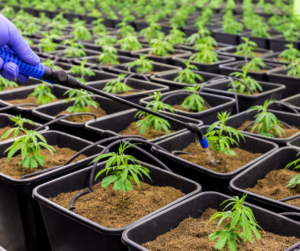 cannabis market is projected to grow from just over $28 billion in 2021 to $197 billion in 2028.
cannabis market is projected to grow from just over $28 billion in 2021 to $197 billion in 2028.
As of this year, 38 states, three territories and the District of Columbia all allow the medical use of cannabis products, according to the National Conference of State Legislatures. For adult non-medical use, nearly half of the states have enacted measures: 22 states, two territories and the District of Columbia.
Yet while the growth of the cannabis industry brings economic benefits, it also raises environmental concerns. Cannabis cultivation, particularly on a large scale, can have several environmental impacts, from energy consumption to water usage and some pesticide use.
These environmental impacts make the need for responsible waste management in the industry even more vital. Failure to manage this waste properly can have severe consequences for the environment and public health.
Hazardous Waste In Cannabis Cultivation
Cannabis cultivation typically generates hazardous waste. This waste includes used solvents, contaminated soil, leftover chemicals and other byproducts resulting from the cultivation and processing of cannabis plants. The sheer volume of waste produced can be staggering, especially in large-scale operations.
Your cannabis business must navigate a complex web of regulations and compliance standards related to hazardous waste management. Failure to meet these requirements can lead to legal penalties and reputational damage.
Federal and state agencies have stringent guidelines in place to ensure the safe handling, transportation and disposal of hazardous waste generated by the cannabis industry. With the environmental and legal challenges posed by hazardous waste in mind, cannabis businesses increasingly recognize the need for expert assistance.
Waste water treatment companies offer environmentally-friendly solutions that not only help cannabis businesses comply with these regulations but also promote sustainable practices and safeguard the environment.
The Role Of Waste Water Treatment Companies
An advanced cannabis waste water treatment process removes contaminants and reduces nutrient levels in cannabis waste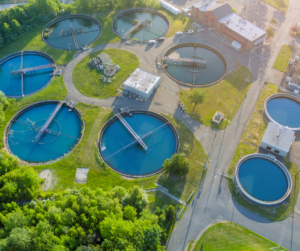 water. These systems used to treat wastewater can bring this type of waste in line with regulatory requirements before disposal.
water. These systems used to treat wastewater can bring this type of waste in line with regulatory requirements before disposal.
Waste water treatment companies continually strive to stay at the forefront of innovation, developing and implementing cutting-edge technologies to address the unique challenges posed by hazardous waste in cannabis cultivation. These innovations include:
- Advanced Filtration: Utilizing advanced filtration systems to remove impurities and contaminants from wastewater generated during cultivation and processing
- Chemical Treatment: Employing chemical processes to neutralize harmful substances and reduce the environmental impact of hazardous waste
- Biological Treatment: Harnessing the power of microorganisms to break down organic compounds and transform them into less harmful byproducts
- Waste-to-Energy Solutions: Exploring methods to convert organic waste into renewable energy sources, contributing to sustainability efforts
Waste water treatment companies are also increasingly focusing on the concept of closed-loop systems. These wastewater treatment systems recycle and repurpose treated industrial water for various purposes within cannabis cultivation facilities. This not only reduces water consumption but also minimizes the environmental footprint of the industry.
For example, treated wastewater can be reused for irrigation, reducing the strain on local water resources and promoting efficient water usage. Recycled wastewater also can be used in cooling systems, further improving energy efficiency and sustainability.
There’s a push to invest in research and development to discover more efficient and eco-friendly waste treatment methods that are likely to yield breakthroughs that benefit both the cannabis industry and the environment.
Yet with any initiative, there are also challenges that lie ahead, including one often overlooked aspect of the waste water treatment process.
Challenges In The Waste Water Treatment Process
Despite the progress made in waste management within the cannabis sector, several challenges persist. The regulatory landscape for cannabis businesses is dynamic and can vary significantly from one jurisdiction to another. Adapting to evolving waste management regulations remains an ongoing challenge.
As cannabis cultivation continues to expand as well, the industry faces the ongoing challenge of scaling sustainable waste management practices to meet growing demands.
Maintaining a positive public image is also crucial for cannabis businesses. Challenges related to waste management, if not addressed responsibly, can lead to negative perceptions among consumers and communities.
Finally, the management of hazardous waste in cannabis cultivation is a multifaceted challenge, and one often overlooked aspect is the safe transportation of waste to a treatment facility. The process of transporting this type of waste requires compliance with strict regulations to prevent spills, leaks and other potential hazards during transit.
While you may you’re meeting all of the regulations that apply to your business and acting with a high level of sustainability in mind by choosing an environmentally-friendly waste water treatment process, if you can’t get your waste to its final destination safely, you risk jeopardizing your compliance and business’s reputation.
That’s where experienced cannabis waste disposal companies come in.
How Cannabis Waste Disposal Company Can Help
The cannabis waste disposal process should always include safe and compliant transportation to the appropriate disposal or recycling facilities, whether you are disposing of waste water, used solvents, extracted byproducts, contaminated soil, lab waste, packaging waste, and even expired or unused products.
An experienced cannabis waste disposal company can be a valuable partner in ensuring your entire wastewater disposal process is compliant. It’s important to remember that your cannabis waste management process should include every aspect from the moment waste is generated to when it is properly disposed of.
When choosing a disposal partner, make sure any company you are considering is licensed and legally permitted to transfer your waste water to the appropriate facility. Waste water regulations are also constantly evolving as the demand for cannabis products increases, so cannabis disposal services should have a deep understanding of local, state and federal requirements.
Above we discussed some of the different wastewater treatment processes available to you. A cannabis disposal partner should be familiar with these processes and be able to transport your waste water to these treatment plants, even if that means transporting your waste outside your region.
Other qualities of a top cannabis waste transportation company include:
- Reliability
- Timeliness
- Security (for both your waste and any proprietary information)
- Flexibility
- Knowledge of storage and labeling requirements
The cannabis industry’s rapid growth has highlighted the need for environmental and regulatory changes, particularly the responsible management of cannabis waste. From used solvents and contaminated soil to waste water that must be treated before it is ultimately disposed of, various types of waste can stem from the production of cannabis products.
How you manage that waste plays a crucial role in shaping not only the future of your company, but a more environmentally-conscious and socially-responsible future for the cannabis industry.
Collaborating with waste water treatment companies and waste management experts can help your business thrive and be instrumental in achieving the goal of minimizing the ecological footprint of cannabis cultivation and production.

